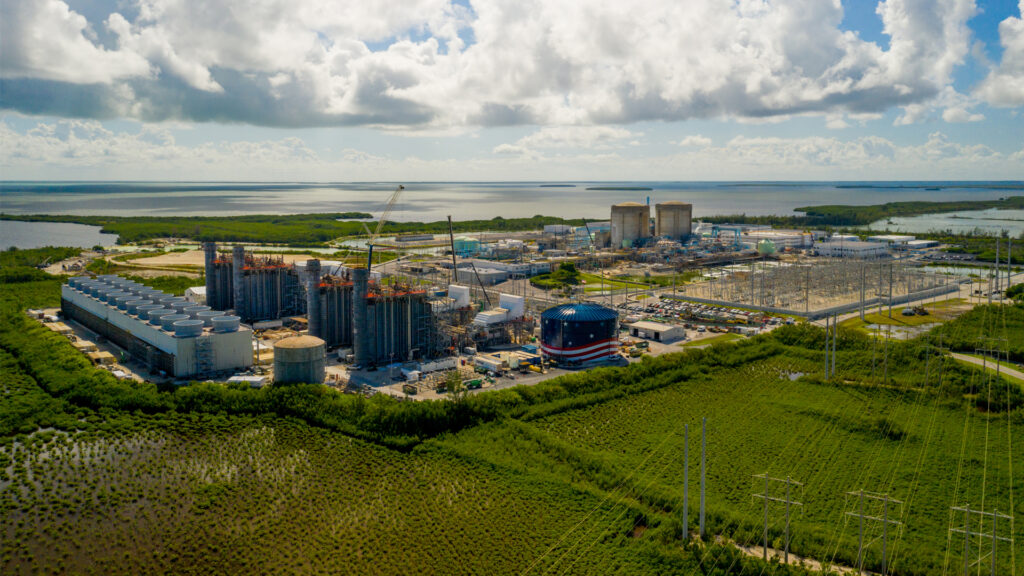By Rachel Silverstein, Miami Waterkeeper, and Edward R. Ornstein, Miccosukee Tribe of Indians of Florida
Miami-Dade’s aging nuclear plant, Turkey Point, has been granted a license to operate two reactors through 2053 — an unprecedented 20-year lifeline beyond its current expiration date.
The Federal Nuclear Regulatory Commission (NRC) has granted this license extension despite ongoing safety concerns, including potential contamination of our drinking water aquifer and clear risks from heat, storms and flooding.
Given this, it’s fair to question whether this plant is prepared for the coming decades. That’s why Miami Waterkeeper has appealed this licensing decision. And not for the first time.
Driven by concerns over reliance on unsustainable fossil fuels, many Americans are open to promises of improved, safer nuclear energy technologies.
In the words of President Donald Trump, “Fears about nuclear power are really about a few disasters (like) Fukushima, Three Mile Island and that these are old systems, and that they’re much more capable now and they’re capable of making even better systems.”

But South Florida’s Turkey Point is not a new system; it’s older than Chernobyl and Three Mile Island — and only a year younger than Fukushima.
If Turkey Point’s latest license extension holds, it will be operating half a century beyond the end of its original 30-year license.
In 2022, after years of challenges and appeals by Miami Waterkeeper and our partners, Natural Resources Defense Council and Friends of the Earth, the NRC overturned a similar 20-year license extension request for Turkey Point.
The NRC, siding with us, ordered Florida Power & Light (FPL) back to the drawing board to take a harder look at environmental issues, including climate risks and groundwater contamination at the site. But when FPL re-applied for the license last summer, its risk assessment still lacked meaningful analysis to reassure us that its unique vulnerabilities were fully considered.
This past April, the U.S. Government Accountability Office even released a groundbreaking report, identifying Turkey Point as one of the most climate-vulnerable nuclear plants in the country, facing risks ranging from heat to flooding to storms.
The Turkey Point reactors sit in a low-lying area that’s vulnerable to flooding. Although the actual nuclear core is elevated, best-case-scenario models from the University of Florida suggest that by 2040 the area surrounding Turkey Point — including the roads in and out, the backup power and possibly even the spent fuel stored on-site — could be under water.
During 2023’s heat wave, the average “cooling” canal temperatures neared 100 degrees. Hurricanes are getting stronger and rainfall more intense. And yet, FPL refuses to address the plant’s risks fully.
No less problematic, the plant’s unlined cooling canal system is contaminating our underground drinking water supply with a plume that has been spreading underground for decades. The plume has even been clocked moving at a rate of more than one foot per day toward the Florida Keys’ drinking water wellfield.
Despite being ordered to pull the contaminated water back to its property, and for years asserting that it will, FPL has failed to fix this crisis. In a recent report, FPL now admits that its remediation isn’t going to work as intended.
We, the residents of South Florida, will pay the price for any of this contamination. But FPL is still telling the federal government to look the other way as our drinking water supply is in danger of contamination.
Extending the operating license for the Turkey Point plant shouldn’t be just a bureaucratic checkbox. It’s a decision with profound implications for Miami’s environment and safety.
And significant questions remain: Is Turkey Point prepared for a major hurricane? Will the FPL be able to operate the reactor during flooding? Or as temperatures climb, will cooling canals continue to contaminate our drinking water supply?
Before we green light decades of risky operations at the Turkey Point plant, FPL and the federal government must demonstrate, beyond a shred of any doubt, that the reactors will not lead to a future catastrophe for Miami.
Rachel Silverstein is the CEO of Miami Waterkeeper and Edward R. Ornstein is the deputy general counsel for the Miccosukee Tribe of Indians of Florida. Reach her at ra****@**************er.org. This opinion piece was originally published by the Miami Herald, which is a media partner of The Invading Sea. Banner photo: Turkey Point Nuclear Generating Station in 2019 (iStock image).
Sign up for The Invading Sea newsletter by visiting here. To support The Invading Sea, click here to make a donation. If you are interested in submitting an opinion piece to The Invading Sea, email Editor Nathan Crabbe at nc*****@*au.edu.



